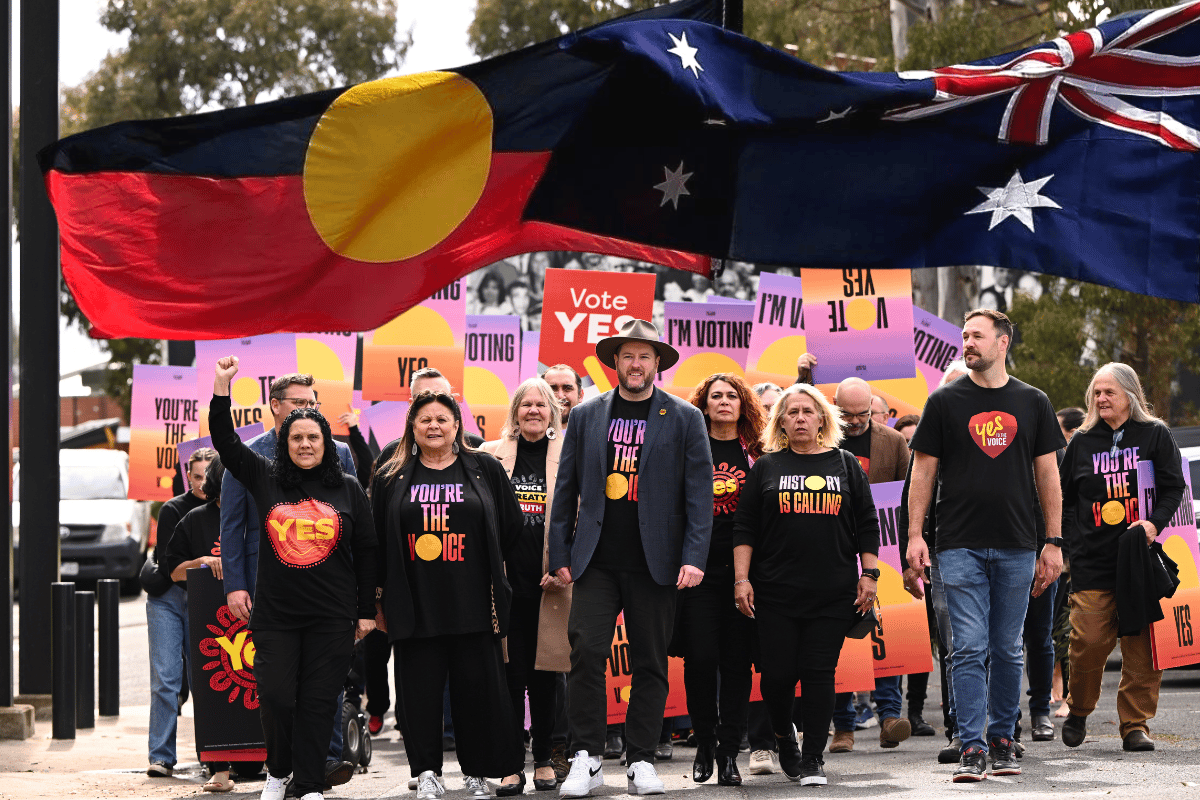
A reckoning is coming. And it's in the form of a referendum.
Many see the vote as a resounding opportunity to recognise Aboriginal and Torres Strait Islander people in our constitution, and work towards closing the gap.
To some, the Voice is a step in the right direction. Others have a lack of trust in the government and what they are promising to achieve, given past histories.
Then there's another group of people. This group don't make up the entire 'no' vote, but they certainly are the loudest, and perhaps the most dogged in their opinions, which are broadly conservative.
For context, some of the political figures pushing for this include Peter Dutton, Pauline Hanson and Tony Abbott.
Watch: Anthony Albanese on the Voice referendum. Post continues below.
Conversing with people who think differently to us is a fact of life, and healthy debate should be encouraged.
But around particularly sensitive subjects like this one, it can make a conversation feel rather daunting and fraught.
If you are among those who see voting yes as a way to make a positive difference, here's a guide to common arguments against the Voice from the very conservative viewpoint and how to address them.




























































































